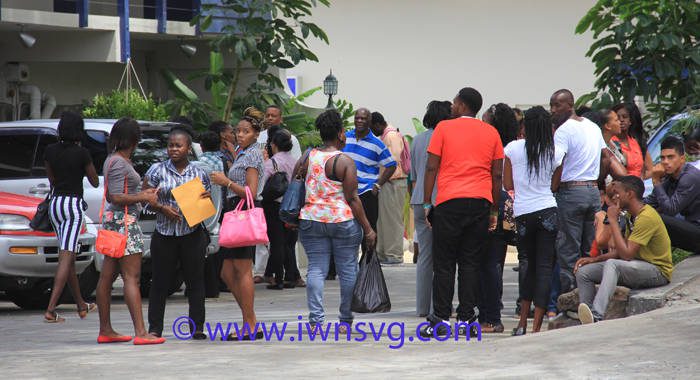Almost six out of every 10 Vincentians (58 per cent) surveyed in a recent poll said jobs/employment, the cost of living and the economy were their greatest concern, just under three weeks ahead of the next Wednesday’s general elections.
The poll, commissioned by the incumbent Unity Labour Party (ULP) and conducted by CADRES, Barbados-based poling agency, from Nov. 20 to 22, also found that 11 per cent of the 800 respondents in the 13 constituencies in St. Vincent “were concerned about Crime”.
The two Grenadine constituencies were not included in the polls.
“… the remaining respondents were preoccupied with other issues such as health, education, roads and housing,” CADRES said in a press release on Tuesday.
The poll also measured party support statistic, with some 43 per cent of respondents indicated they intended to vote for the ULP, while 28 per cent said they will be voting for the NDP and 29 per cent of respondents were either unsure of their voting intentions or preferred not to say, CADRES said.
“On previous occasions, CADRES has successfully estimated where this ‘Uncertain Support’ is likely to fall based on the electoral history of St Vincent and our formula projects a likely national swing of +5 per cent in favour of the ULP, with a commensurate deterioration in the fortunes of the NDP.
“On this present track, therefore, the ULP is likely to emerge victorious on the 9th of December 2015,” CADRES said.
The ULP is seeking a fourth consecutive term in office amidst declining fortune in each election since 2011.
The party held on to power in December 2010 by a single seat, having lost to the NDP in that election four of the seats it held in the previous Parliament.







There is a fundamental contradiction with the voter concern about high unemployment, the cost of living, and the economy and the higher support for the ULP in this survey which can only be explained by the fundamental ignorance among the electorate of basic economic principles.
A high spending, taxing, welfare dependence, and sky high borrowing economic policy in a poor country with few resources beyond the people themselves is a certain recipe for slow growth, high unemployment, even higher unemployment, and strangling debt repayment costs.
It is also a sure recipe for maintain political power when combined with a populace that is economically illiterate and preoccupied with living now- for-now.
People like Peter Binose claim that the Prime Minister is an economic dunce. Not true. He is merely a politically brilliant strategist.